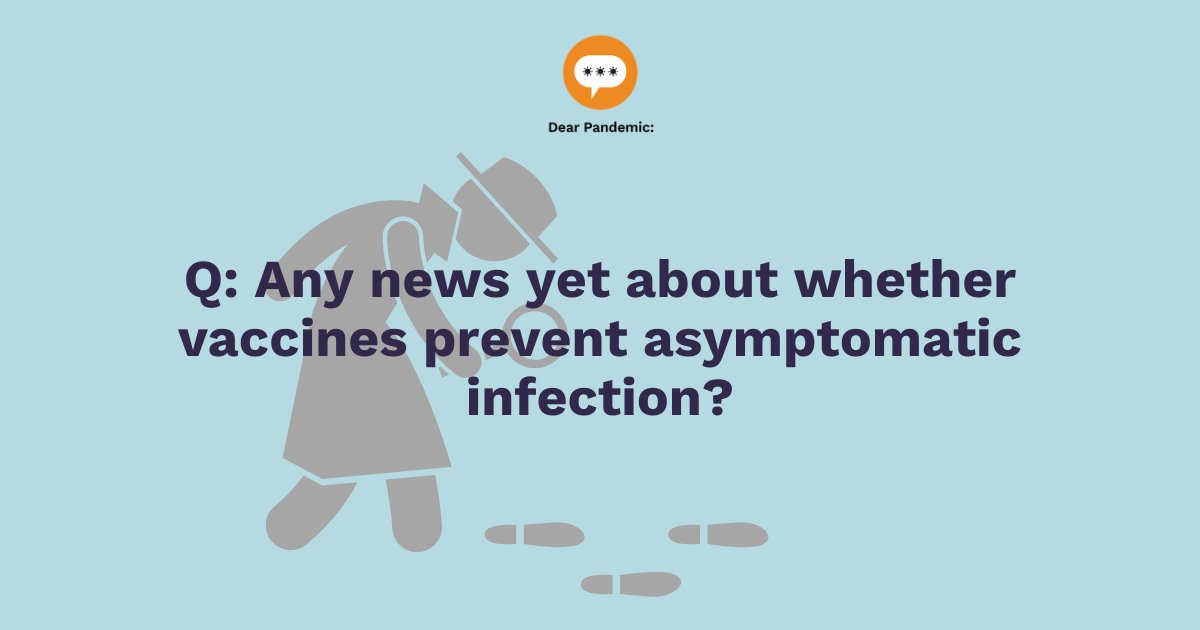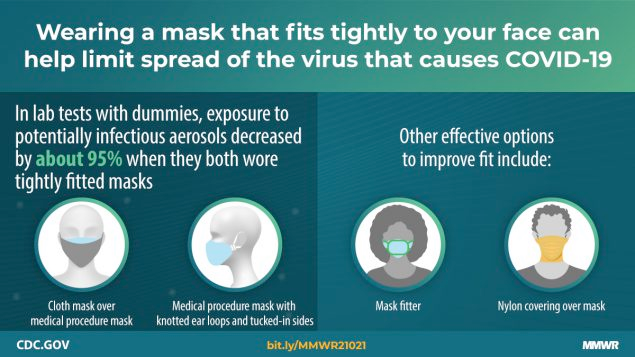
1/ Q: Any news yet about whether vaccines prevent asymptomatic infection?
A: YES! We are getting a steady trail of clues hinting that the #vaccines DO IN FACT REDUCE INFECTIONS!
A: YES! We are getting a steady trail of clues hinting that the #vaccines DO IN FACT REDUCE INFECTIONS!

2/ The #clinicaltrials for the various #vaccines did not study whether they prevented asymptomatic infection or transmission. That’s because vaccines are thought of as medicine--something that operates at the individual level, not the pandemic-management level.
3/ So, the vaccine trials measured whether, compared to people who didn't get the vaccine, the people who were vaccinated had reduced risk for the worst of the bad clinical outcomes from COVID:
➡️ symptomatic COVID-19
➡️ hospitalization
➡️ and/or death.
➡️ symptomatic COVID-19
➡️ hospitalization
➡️ and/or death.
4/ The clinical trial data show that the vaccines are safe & also *very* good at reducing the risk of those bad outcomes. Hooray!
5/ That's great, but in order to control the population problem of transmission from one person to another, we need to know something different: whether the vaccines also protect their recipients from infection (including asymptomatic infection) & from *becoming contagious*.
6/ These questions weren’t part of the phase 3 randomized controlled trials. But there are several epidemiological studies ongoing, and we’re starting to see very hopeful preliminary results from them.
bloom.bg/3srJvhT
bloom.bg/3srJvhT
7/ In a study ongoing in Israel, the @pfizer vaccine appears to stop the majority of recipients from ever becoming infected. And in a preprint, the @pfizer vaccine was also found to reduce BOTH symptomatic & asymptomatic infection in a cohort of healthcare workers in the U.K.
8/ Icing on the cake🎂: this U.K. study was fielded while the #B117 variant was circulating, so we can infer that it also protects against that #variant.
9/ These studies have not yet been peer-reviewed. We’ll have to wait for more information that confirms these findings....
bit.ly/3srJnip
bit.ly/3srJnip
10/ But they do hint about something we are all hoping for: the vaccines protect the majority of recipients from asymptomatic infection. And of course, people who are never infected are never able to transmit the virus to others.
• • •
Missing some Tweet in this thread? You can try to
force a refresh






